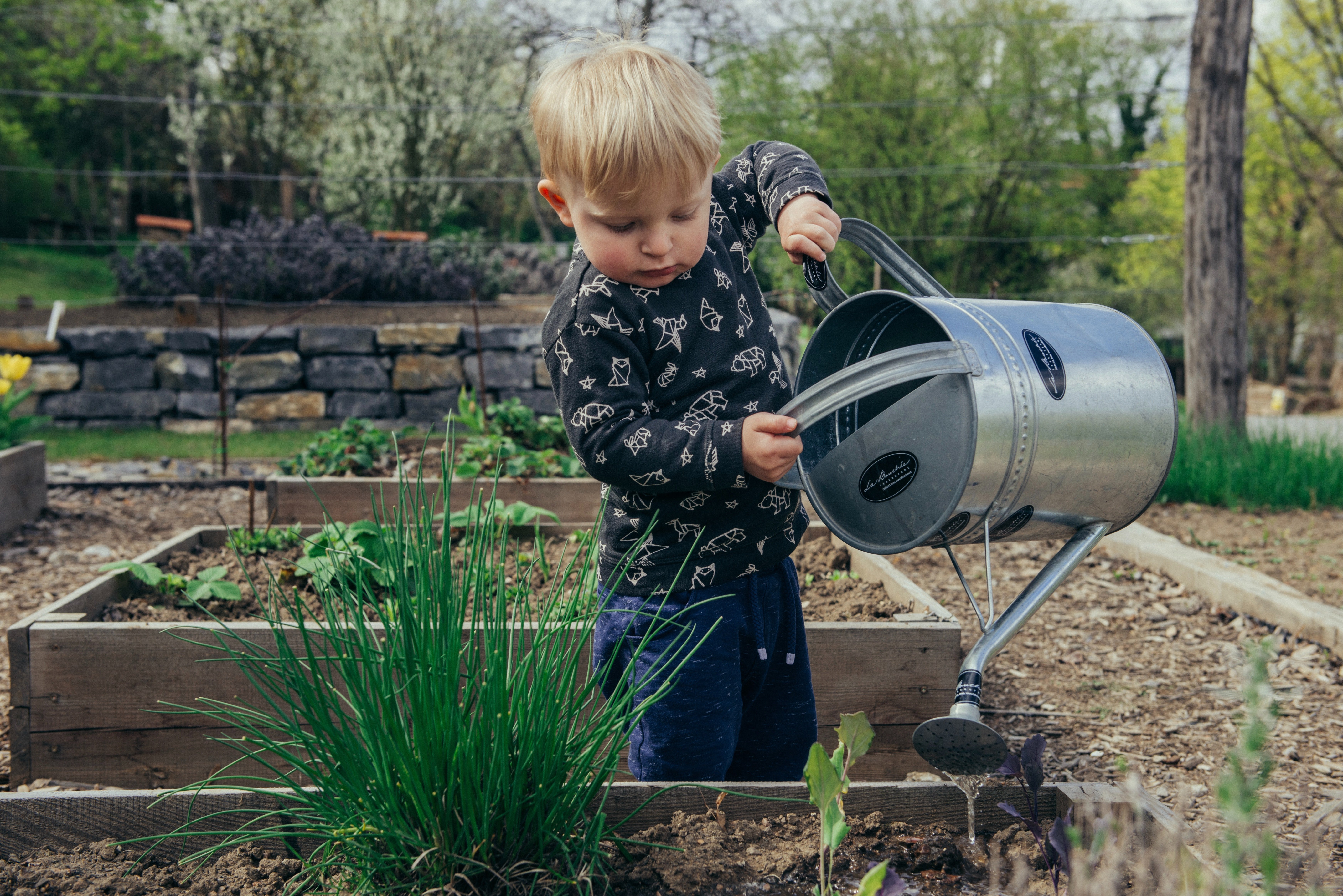Teaching Kids to Adopt a Growth Mindset

As the new year rolls around and we’re surrounded by talk of setting personal goals and resolutions, many of us may be seizing the opportunity to form new habits or explore new passions. Maybe you’ve always wanted to run a half-marathon, try making pottery, or learn a different language. Stepping out of your comfort zone to try something new can be incredibly rewarding, but when you’re just beginning to do something you’ve never tried before, you’ll inevitably run into a few challenges.
These kinds of challenges are a good thing: when we try something difficult or are faced with a problem that requires a lot of effort to overcome, we’re actually helping our brains to physically grow. However, for many people, setbacks and mistakes can feel devastating, and they might be reason enough to avoid stepping out of our comfort zones altogether. Often, these feelings start in childhood. Some kids embrace the thought of a challenge, while others see difficulty as a sign that they just aren’t good at what they’re doing and a reason to give up.
Here’s one New Year’s resolution that’s sure to help you and your kids reframe how to think about a challenge: adopting a growth mindset.
The concept of a growth mindset comes from the research of Dr. Carol Dweck, a professor of psychology at Stanford University. According to Dr. Dweck, there are essentially two ways of thinking about your own abilities. First, there’s a fixed mindset. People with a fixed mindset believe that a person’s talents and intelligence are innate and can’t be changed. People with a growth mindset, however, believe that a person’s abilities can be developed over time.
According to neuroscience, a growth mindset is backed. We have neuroplasticity to thank for that. Neuroplasticity is the brain’s ability to grow and adapt by organizing and reorganizing how our neurons are connected, and this process happens all throughout our lives. In other words, our mental abilities are in fact malleable, and we allow our neurons to form new and stronger connections when we practice our skills or learn something new.
Despite what we know about how our abilities can be developed over time, many people are led to think from a young age that their skills and talents are purely built-in. At a young age, some kids start to receive a lot of praise for excelling in school and getting good grades without having to try very hard. This sends a message to these kids and their peers that having to put a lot of effort into learning is actually a bad thing. It means that you aren’t very smart to begin with, and it’s better to be naturally talented without having to struggle much.
This isn’t true at all, and throughout Dr. Dweck’s research, she has found that in the long run, kids who embrace hard work as an important part of learning outperform those who may have at first seemed “naturally” smarter but avoid challenging themselves.
People with a fixed mindset will believe that some people are naturally “good” at things, and others just aren’t. Because of this, they are more likely to give up on things they don’t immediately succeed at, and they see mistakes as a lack of talent. People with a growth mindset value learning more than proving or showcasing their intelligence, and they embrace challenges as important opportunities to learn and grow.
Luckily, because our brains are so malleable, our mindsets can be changed! Here are a few ways that you can encourage a growth mindset in your kids.
1. Praise their process.
When you see your kids accomplish something, it can be tempting to react by praising their abilities. You might want to tell your child how smart they are when they finish a challenging new book, or how talented they are after winning a tennis match, but this can unintentionally encourage them to have a fixed mindset; it can send the message that they achieved what they did thanks to their natural skills alone.
It can be hard to resist offering your child this kind of praise, but according to research, simply telling your kids how bright or talented or smart they are might not have the benefits we think it does. Instead, try to acknowledge their process. You could recognize the effort and hard work they put into their goals, the perseverance they showed when they encountered challenges, or the strategies they used to improve and learn. For example, you might try offering praise like this: “I know how hard you’ve been practicing your piano lately. That was a really difficult song you played!”
Pay close attention to how they’re working on something. Are they staying really focused on a difficult math problem? Are they reaching out for help when they need it? Asking in-depth questions about a reading assignment? Making flash cards to try a new study method? Praising these behaviors will be so much more meaningful for them in the long run.
2. Teach them that their role models worked hard.
By showing your kids that the people they look up to worked hard to develop their skills and accomplish their goals, you can emphasize the importance of embracing challenges. Find and share stories about the passion and determination of successful people — athletes, olympians, scientists, poets, musicians, artists, whoever they aspire to be like — rather than ones that praise important figures as natural-born geniuses.
3. Teach them about the brain.
Help your kids understand that when we learn new things and challenge ourselves, our brains actually grow. Teach them about how our brains are a malleable muscle, and how we can make them stronger with practice and hard work. Of course, you can keep the scientific details of this age-appropriate and explain things at a level they’ll understand, but teaching kids about how our brains change and develop over time and with effort can encourage them to work harder and see difficult tasks as a positive thing instead of a bad sign.
4. Encourage them to make mistakes.
Nudge your kids towards taking on challenges — even ones that they may not succeed at on their first try. Encourage them to see mistakes not as a failure of their abilities, but something they can learn from. Making a mistake just means that you’ve got room to grow! In her TED talk, Dr. Dweck refers to this as "the power of yet." If you fail at something, you may not have the right skills just yet. This doesn’t mean you won’t develop them as you persevere, keep learning, and continue trying. Help your kids become more comfortable with messing up from time to time, and encourage them to let go of the idea that a bad grade, a piece of constructive criticism, or any kind of setback should shut them down.
P.S. It’s never too late to start developing a growth mindset. Even as grown-ups, we can teach ourselves to think differently about our skills and challenges, too!
To learn more about raising resilient, confident kids, check out maro parents.
Photo by Filip Urban on Unsplash.
Sources:
“Should We Stop Telling Kids They’re Smart?” on NPR’s TED Radio Hour featuring Carol Dweck.
“Teach Your Kids to Fail” by Jessica Grose for The New York Times.
“New study yields instructive results on how mindset affects learning” by Lisa Trei for the Stanford Report.
“The Secret to Raising Smart Kids” by Carol S. Dweck for Scientific American.

